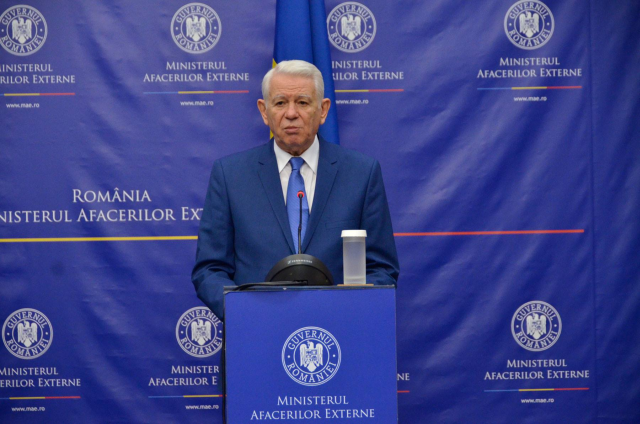Bucharest and Budapest exchange messages
The suspension of the activity of a Hungarian confessional college in central Romania that did not meet all the legal criteria has inflamed the diplomatic dialogue between Bucharest and Budapest

Bogdan Matei, 07.09.2017, 13:11
The historical reconciliation between post-communist Romania and Hungary in the 1990s is often cited by specialist studies as a success story and compared with that between France and Germany after the war. The memory of a bloody 1,000 year-old rivalry, dating from the period when the Hungarians ruled over Transylvania, a province with a majority ethnic Romanian population, is revived from time to time, leading to a strain in relations between Romania and Hungary.
Romanias ambassador to Hungary Marius-Gabriel Lazurca was summoned on Wednesday at the Hungarian foreign ministry, where he was informed by the undersecretary of state Levente Magyar that the government in Budapest would suspend for an indefinite period its support for Romanias candidacy to various international organisations, such as the Organisation for Economic Cooperation and Development (OECD). We are perplexed, he said, at the fact that, one day after a visit by the Hungarian foreign minister Peter Szijjarto to Bucharest, the Romanian authorities said they would suspend the activity of the Roman-Catholic Gymnasium in Targu Mures, in the centre.
The move is seen by Hungary as an attack to the Catholic Church, the faith of the ethnic Hungarian minority in Romania, to ethnic Hungarian children and families, said the Hungarian official with vehemence unseen in Romanian-Hungarian dialogue in recent years. Foreign policy commentators view Budapests announcement all the more inimical and inopportune as the Romanian Foreign Minister Teodor Melescanu had just presented OECD Secretary General Angel Gurria with the advantages of Romanias candidacy, with emphasis on political determination and the fulfillment of the evaluation criteria established by the organisation.
While more moderate, Bucharests response came promptly, in the form of a communiqué from the foreign ministry saying the position of the government in Budapest is linked to the election campaign in Hungary. Any educational institution in Romania must respect, without exception, the Romanian legislation, which is enforced without discrimination based on ethnic and religious grounds or of any other type, said the foreign ministry in Bucharest. The communiqué also reads that any attempt to present the situation at the Roman-Catholic Gymnasium in Targu Mures as a failure to respect the rights of ethnic minorities does not reflect reality, because there are many other examples of institutions demonstrating that the Romanian state ensures the right of the ethnic Hungarian minority to education in the mother tongue, to the highest standards.
Indeed, the members of this community, which numbers around 1.5 million people, most of whom live in Transylvania, are guaranteed the right to study in the Hungarian language, from nursery school to post-university studies. Moreover, the education policies of the Romanian state have always taken into account the requests of the Democratic Union of Ethnic Hungarians in Romania, a political party that has been part of every Romanian Parliament since 1990 and has also frequently formed part of the coalition governments in Bucharest.
(Translated by Cristina Mateescu)






























